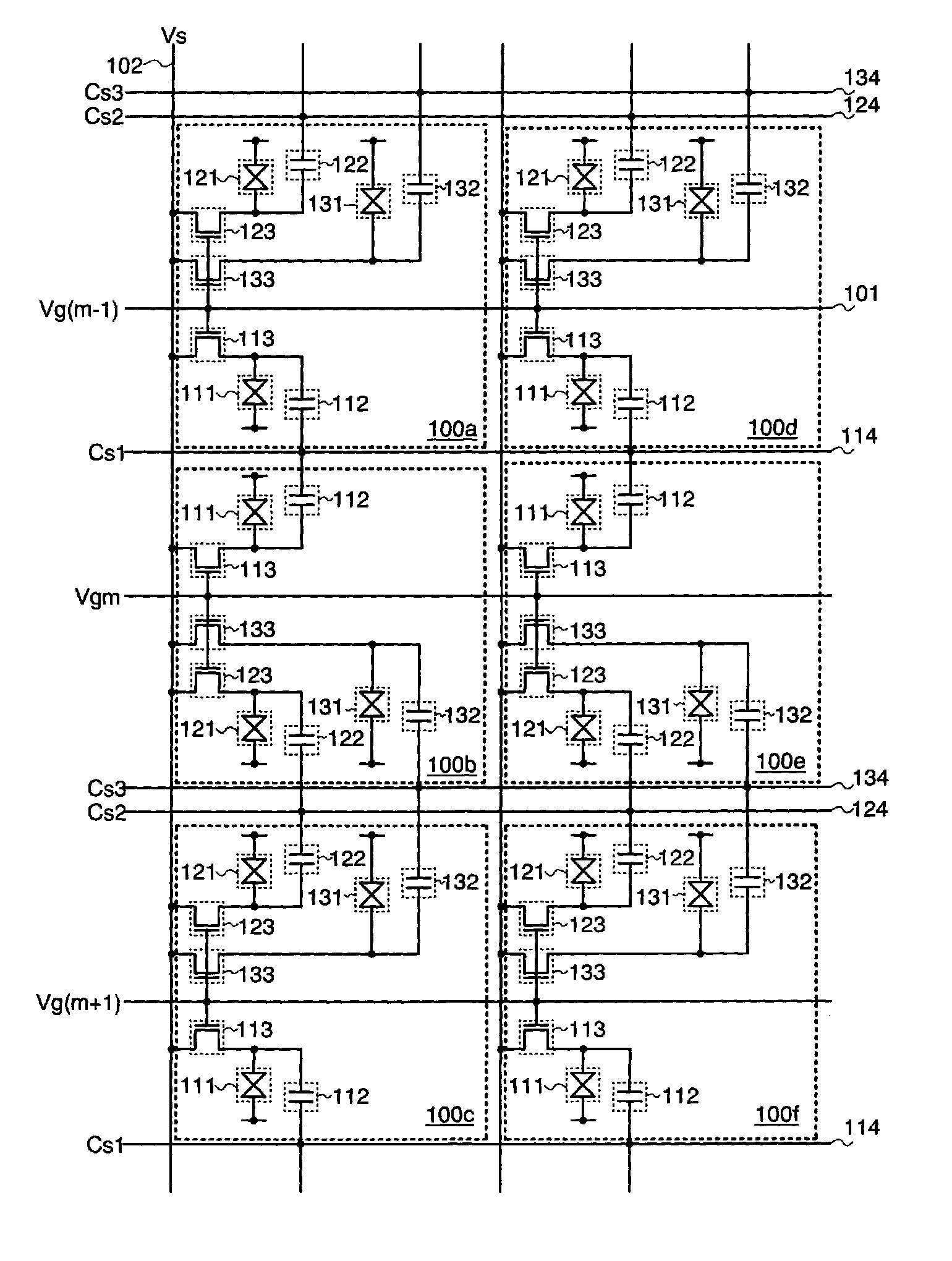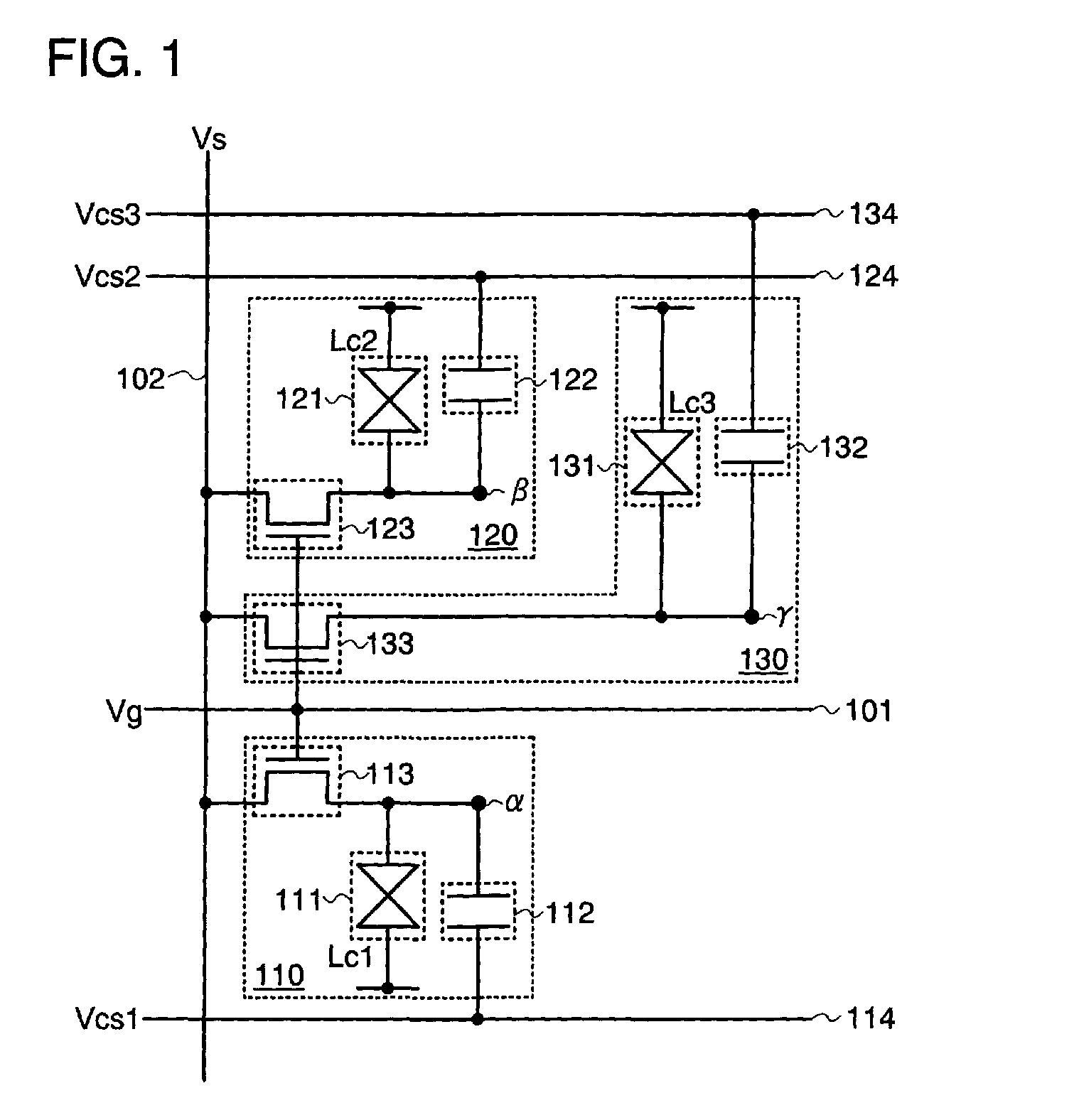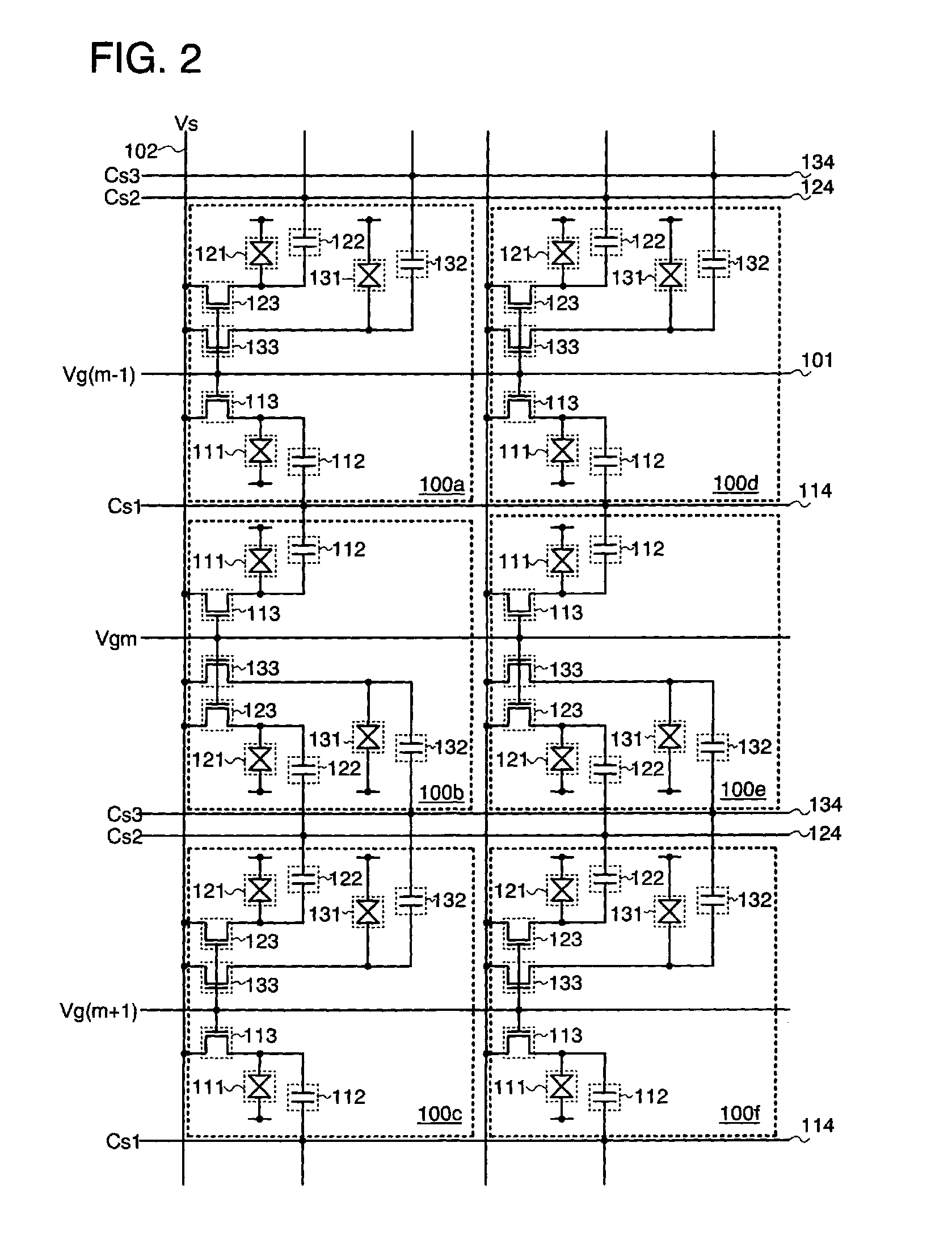Liquid crystal display device
a display device and liquid crystal technology, applied in static indicating devices, instruments, non-linear optics, etc., can solve the problems of short life of backlight itself, high power consumption, and insufficient addition of sub-pixels to one pixel, so as to improve viewing angle, reduce suppress the effect of aperture ratio
- Summary
- Abstract
- Description
- Claims
- Application Information
AI Technical Summary
Benefits of technology
Problems solved by technology
Method used
Image
Examples
embodiment mode 1
[0169]In this embodiment mode, a structural example of a display device of the present invention will be described with reference to drawings.
[0170]A display device described in this embodiment mode includes a plurality of pixels and a plurality of sub-pixels is provided for each of the pixels. A structure of one pixel will be described with reference to FIG. 1.
[0171]FIG. 1 shows a structure of a pixel which is provided with three sub-pixels. A first sub-pixel 110 includes a first liquid crystal layer 111, a first capacitor element 112, and a first transistor 113. Similarly, a second sub-pixel 120 includes a second liquid crystal layer 121, a second capacitor element 122, and a second transistor 123; and a third sub-pixel 130 includes a third liquid crystal layer 131, a third capacitor element 132, and a third transistor 133. Although a structure provided with transistors is shown here, other switching elements such as a diode may be provided.
[0172]Each of the first liquid crystal l...
embodiment mode 2
[0232]In this embodiment mode, a structure of a display device, which is different from that shown in Embodiment Mode 1, will be described with reference to diagrams. Specifically, with respect to the structure shown in Embodiment Mode 1, the case where the scanning line and the third capacitor wiring are provided as one is shown.
[0233]FIG. 4 shows a structure of pixels in a display device which is described in this embodiment mode. Note that FIG. 4 shows the structure in which three sub-pixels are provided in each of a plurality of pixels 100a to 100f. Specifically, the first sub-pixel is provided with the first liquid crystal layer 111, the first capacitor element 112, and the first transistor 113; the second sub-pixel is provided with the second liquid crystal layer 121, the second capacitor element 122, and the second transistor 123; and the third sub-pixel is provided with the third liquid crystal layer 131, the third capacitor element 132, and the third transistor 133.
[0234]In...
embodiment mode 3
[0255]In this embodiment mode, a semiconductor device which is different from the above-described embodiment modes will be described with reference to diagrams.
[0256]FIG. 8 shows a structure of a pixel in a display device which will be described in this embodiment mode.
[0257]A pixel shown in FIG. 8 has a structure in which five sub-pixels are provided. The first sub-pixel 110 includes the first liquid crystal layer 111, the first capacitor element 112, and the first transistor 113. Similarly, the second sub-pixel 120 includes the second liquid crystal layer 121, the second capacitor element 122, and the second transistor 123; the third sub-pixel includes the third liquid crystal layer 131, the third capacitor element 132, and the third transistor 133; the fourth sub-pixel 140 includes the fourth liquid crystal layer 141, the fourth capacitor element 142, and the fourth transistor 143; and a fifth sub-pixel 150 includes a fifth liquid crystal layer 151, a fifth capacitor element 152,...
PUM
 Login to View More
Login to View More Abstract
Description
Claims
Application Information
 Login to View More
Login to View More - R&D
- Intellectual Property
- Life Sciences
- Materials
- Tech Scout
- Unparalleled Data Quality
- Higher Quality Content
- 60% Fewer Hallucinations
Browse by: Latest US Patents, China's latest patents, Technical Efficacy Thesaurus, Application Domain, Technology Topic, Popular Technical Reports.
© 2025 PatSnap. All rights reserved.Legal|Privacy policy|Modern Slavery Act Transparency Statement|Sitemap|About US| Contact US: help@patsnap.com



